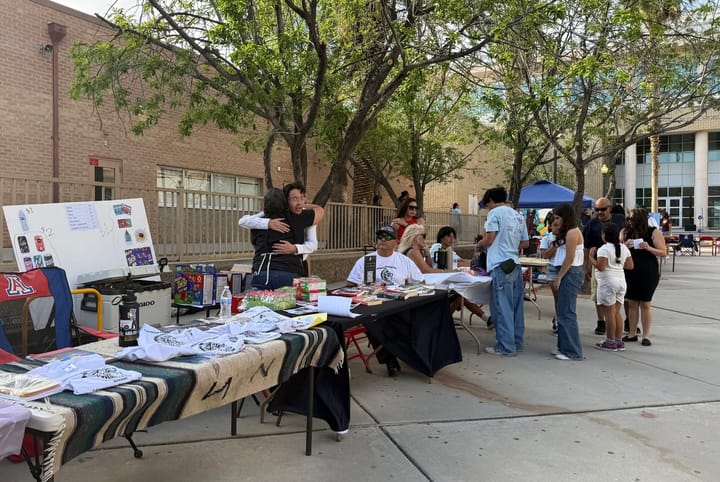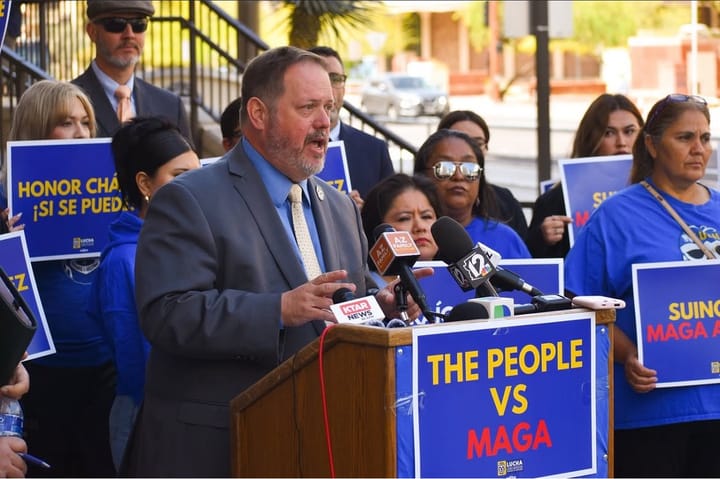Youth lead the charge at PCC’s largest-ever Climate Community Day
Pima Community College’s Climate Community Day brought together students, educators, and local leaders to spotlight youth-driven climate action, intergenerational collaboration, and sustainable solutions for Tucson’s future.
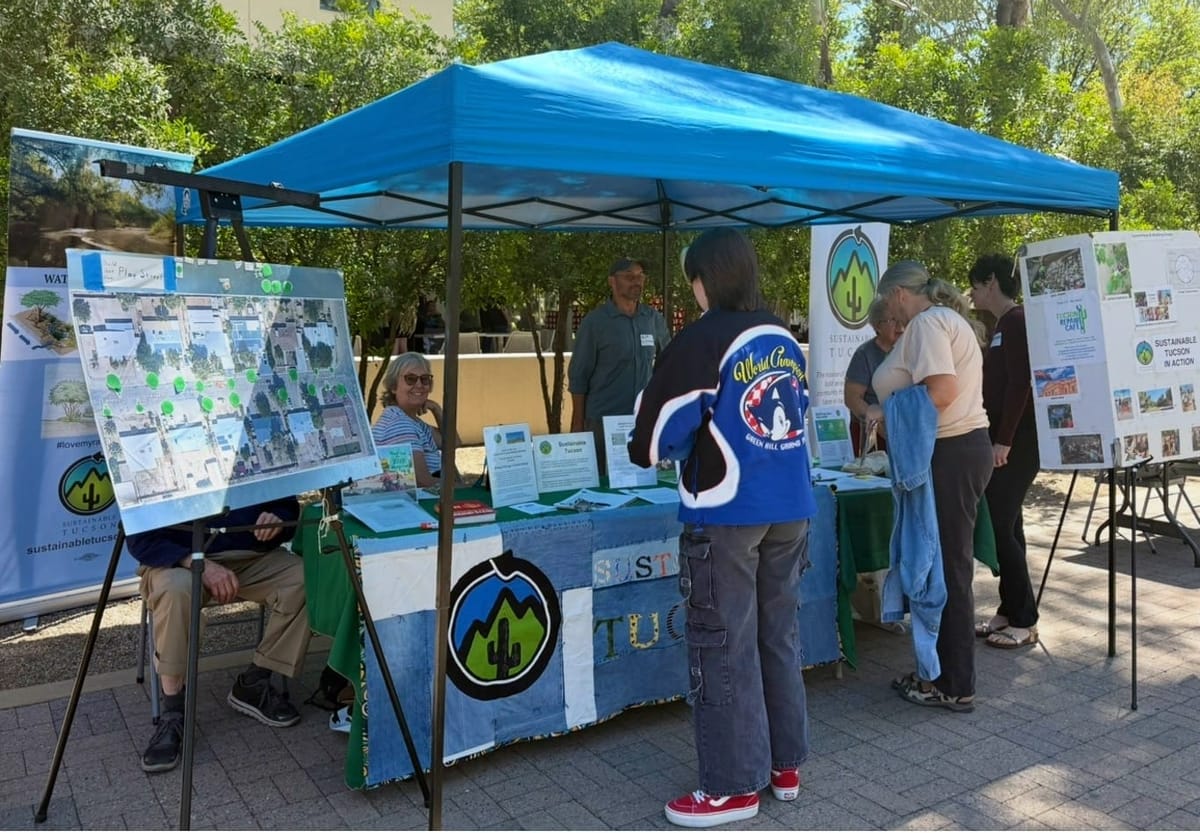
Young voices took center stage at Pima Community College’s largest-ever Climate Community Day this week, as students, educators and local leaders came together to champion Tucson’s role as a sustainability trailblazer.
Held Tuesday at Pima’s Downtown Campus, the event spotlighted intergenerational collaboration and the power of local action in the face of a global climate crisis.
Phill Berry, director of PCC’s Office of Sustainability, said that as a college campus, highlighting youth voices is crucial for a meaningful conversation.
"We're always trying to draw in more young people," Berry said. "I've been doing this for over 45 years, and consistently, people who show up to talk about climate action and sustainability look like me."
The day kicked off with Arizona Youth Climate Coalition leaders Ojas Sanghi and Owen Brosanders, their powerful presentation setting the tone for the day and reminding everyone that the future is in good hands.
The pair shared their journey of crafting a groundbreaking climate action plan for the Tucson Unified School District, which included rejections and scaling back on proposals before the plan finally passed in October of last year.
"We're entirely youth-led," Sanghi said of the group. "But this wouldn't be possible without support from adults. Climate action has to be intergenerational."
Sanghi talked about the importance of local action amid increasing climate uncertainty, saying that young people are struggling to grapple with issues beyond their control. He told attendees that the best way to create change is to start at the local level.
It's also important to recognize when the news cycle becomes overwhelming and adjust accordingly, Brosanders said.
"I deleted all my news apps yesterday because I was getting too many push notifications about the current administration,” he said. “Focusing on local issues is what we need to do right now.”
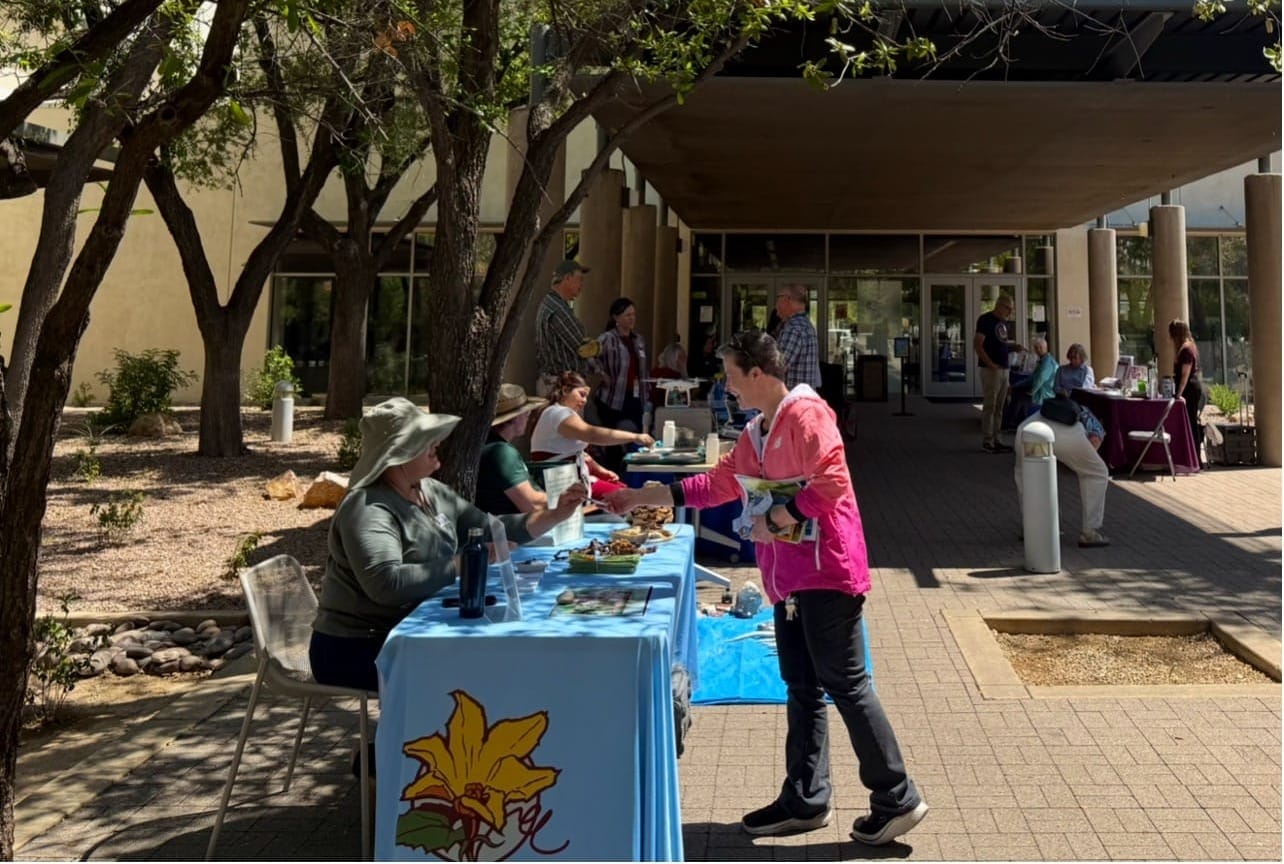
Berry talked about the importance of community support to drive real impact throughout the city and address pressing issues like wildfires. He said that Southern Arizona’s local environmental advocacy organizations are the glue holding the desert ecosystem together.
One of the day’s goals was to uplift the accomplishments of local leaders, with dozens of representatives from nonprofit and non-governmental organizations lining up for the opportunity to showcase their recent efforts and encourage others to join.
Presenting organizations included Tucson Citizens' Climate Lobby, Sonoran Institute, Living Desert Alliance and more. Berry said that over the years, partnerships between these organizations and PCC have been key to its climate and sustainability program’s fast growth.
PCC Chief Strategist Nic Richmond spotlighted the college's near-complete climate action plan, which focuses on making eco-conscious decisions in both academics and school operations. These decisions include slicing the organization's carbon footprint in half by 2030.
"As an educational institution, we have an incredible opportunity to educate our students so that they go out into the community as climate-positive individuals," said Richmond.
Crystal McKenna, head of PCC's Earth Systems and Society Department, talked about how PCC is designing accessible, transfer-friendly courses without prerequisites.
"These courses move students from climate anxiety to climate empowerment," she said.

Student projects reflecting course lessons were displayed throughout the room—colorful, creative and deeply researched visual pieces that tackled environmental challenges head-on.
Another panel included four PCC students who talked about their reasons for signing up for these classes and the real-world impact of their studies.
"Even though it's online and there's a lot to read, you're encouraged to go out into your community and apply what you're learning," said student Mimi Breault-Evans.
Another student, Scott Duncan, raised concerns about the water-intensive demands of emerging AI technologies.
"A chip plant just opened near the Colorado River, and they're using a gross amount of water. Meanwhile, some Navajo elders have never had running water in their lives," he said.
After lunch, attendees explored a sidewalk filled with interactive booths from local organizations. The air buzzed with conversation as attendees sought ways to get involved.
Acclaimed poet and Guggenheim Fellow Alison Hawthorne Deming, author of "The Gift of Animals" and "Blue Flax & Yellow Mustard Flower," was on hand to speak about the moral foundations of environmental ethics.
"We know it is wrong to knowingly increase the suffering of others when we have a kinder alternative," Deming said.
Drawing from literature and her own experiences, Deming explored the fusion of science and art as tools for climate communication. She shared how some research projects have invited poets and philosophers to work alongside scientists to better engage the public.
The event closed with a career and climate panel featuring Miguel Cruz from Tucson Federal Credit Union, Julie Hendricks from JLL and Matt Vaccaro from Trane Technologies, who offered insight into the challenges of sustainable business practices.
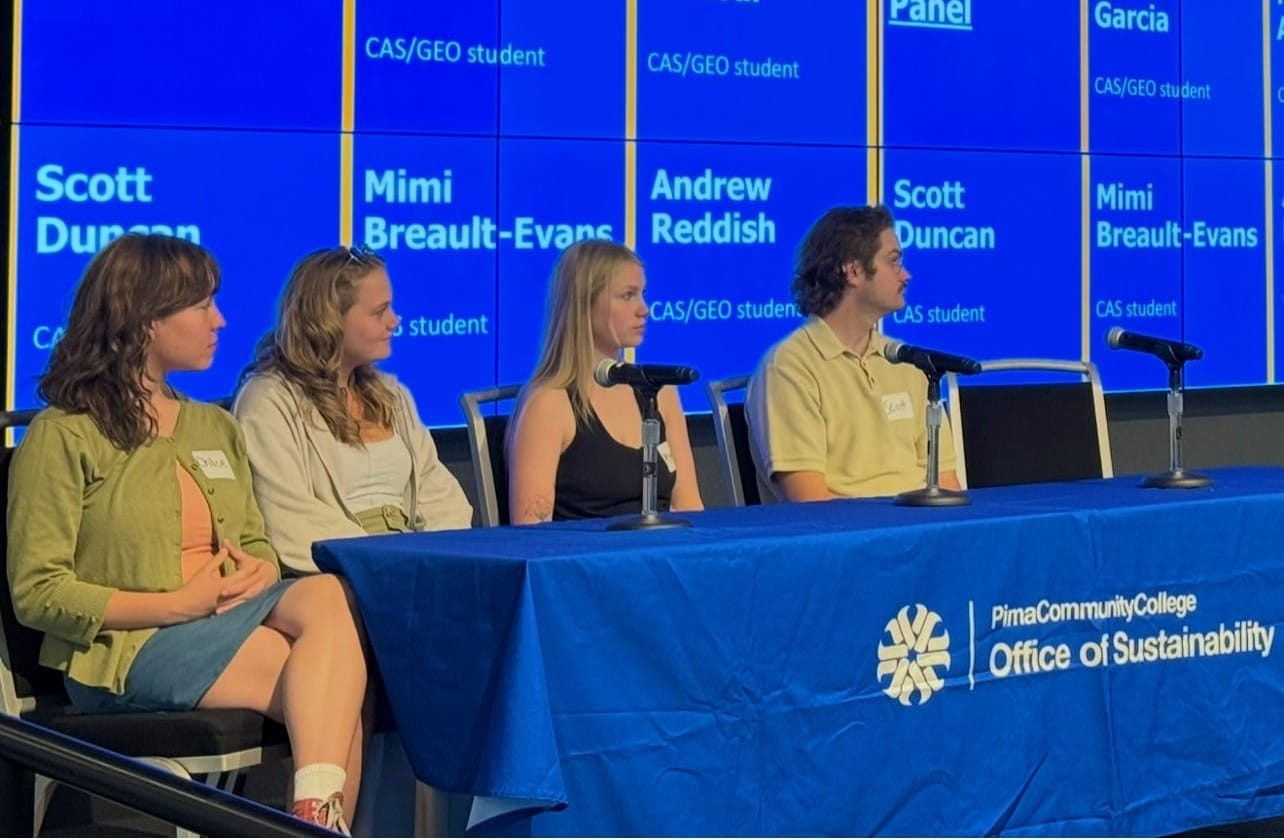
Panelists discussed the common sentiment that profit comes first, saying aspiring professionals must understand that businesses need to be smart with their financial decisions, no matter the ecological cost.
Businesses are attracted to investments that can provide valuable returns in the future, like solar energy, which has a high initial cost but reduces overall electricity costs well into the future.
“We still have to justify those expenditures financially,” said Vaccaro. “If we can’t make a compelling case for return on investment, projects fall by the wayside.”
Panelists also talked about what they look for in a new hire. These businesses are run differently than nonprofits that rely on outside funding, with Vaccaro saying that one very employable skill he looks out for is financial literacy.
“One of the key things I look for is communication. Can you speak to the client in a language they understand? You have to know your audience,” Hendricks said.
The panelists also highlighted how their companies are reducing energy use and resource consumption, inspiring others to carry these ideas into their own workplaces.
“Reinvent yourself. Every opportunity is a chance to take a step in the right direction,” said Tucson Federal Credit Union’s Cruz.
Angelina Maynes is a University of Arizona alum and reporter with Tucson Spotlight. Contact her at angelinamaynes@arizona.edu.
Tucson Spotlight is a community-based newsroom that provides paid opportunities for students and rising journalists in Southern Arizona. Please support our work with a paid subscription.


